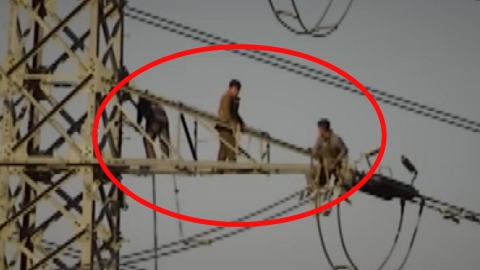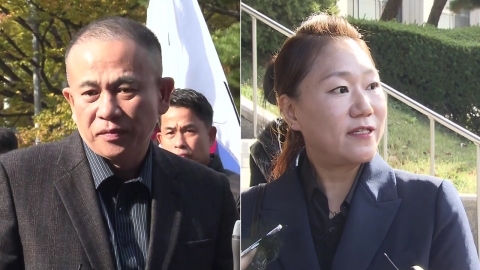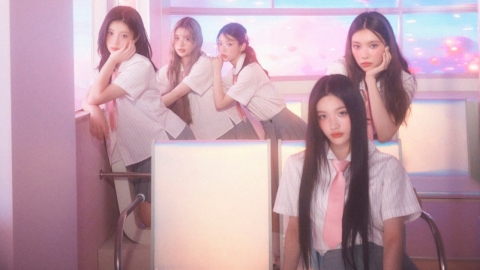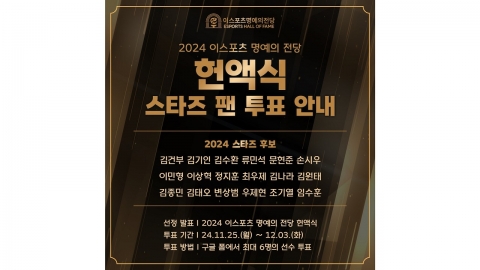■ Starring: Cho Jin-gu, Director of the Japan Center for Far East Studies at Kyungnam University
* The text below may differ from the actual broadcast content, so please check the broadcast for more accurate information. Please specify [YTN NewsON] when quoting.
[Anchor]
Japan's Sado Mine, which has a painful history of forced labor, is the first memorial ceremony since it was registered as a World Heritage Site. As I just told you, it ended in limbo.
There are also growing criticisms against the Korean government over low-key Korea-Japan relations. Let's take a closer look at this situation with an expert. Cho Jin-gu, director of the Japan Center at Kyungnam University's Far East Studies Institute, is here. Welcome.
Hello.
[Anchor]
Let's take a look at this situation step by step. First of all, Sado mine in Japan, what kind of place is it?
The Sado Mine was the place that produced the most gold not only in Japan but also in the world in the 17th and 19th centuries, and the global trend was mechanized, but it was done by hand.
[Anchor]
So that's where the forced labor took place?
That's right. It was done by humans. It can be considered that such value was recognized and registered on UNESCO.
[Anchor]
After being listed as a World Heritage Site, the first memorial service was held this time, and it ended in limbo. The biggest reason is the history of the attendees, right?
I don't think that's necessarily the case. Last July, when we agreed, the Japanese government made some promises.
[Anchor]
We've organized the video for you. We wanted to list the Sado mine on UNESCO, but we couldn't because we were against it.
So we offered some conditions. So the first thing is to be able to see the whole history. Second, if you look at us, we use the expression "forced mobilization" and "forced labor."Ma didn't use such words on the Japanese side. In harsh environments, I used to express these words. Or, in the past, when the so-called warship island was registered in 2015, it was dragged against the doctor and forced to work. There was this expression, but I didn't use that expression this time. a harsh working environment I was going to make a facility to honor them. It can be said that it went down a little bit. And I will hold a memorial service every year. I said I would do it around July and August this year, but it was a little late. It was held in November.
[Anchor]
At first, the Korean government said it would attend the memorial service, but a day earlier, it notified them of their absence. Among the various reasons, they said that the contents of the memorial service were the problem.
Overall, there are a number of problems.The first is a Japanese government representative named a political officer attending, and it seems true that there was a misinformation about the history of a political officer. The question was whether it was right to send the person who visited Yasukuni shrine as a representative of the Japanese government, but he explained to the Foreign Ministry that he did not attend, and the Japanese media is also reporting corrections, so he did not visit Yasukuni shrine.
[Anchor]
You say it was misinformation, but you're blaming Korea again.
Either way, it needs to be explained well. I don't think it's good to see one side transfer responsibility to the other. I read the eulogy. I got it from a close acquaintance and read it. If the previous part is the original purpose of the memorial service, the eulogy should come first, but after mentioning the UNESCO-listed value of the Sado Mine, I express my sincere condolences to the workers. There's an expression like this. And as I said earlier, they were brought in against the doctor and worked. Those expressions should have been included, but there's no such word at all. It came out on the screen.Ma is a policy on workers at the time. This is the conscription policy.
[Anchor]
Aren't you just rationalizing it?
That's right. If it's an expression that Korean workers came accordingly, we can't accept it.
[Anchor]
Then, did we not properly accept the conditions we presented when withdrawing our opposition? How do you think our government should respond?
I need to say a little more. If you do a memorial service, I think it's basic common sense to invite the bereaved families of the victims to the memorial service. In that case, the place in charge of the memorial service has to pay the cost. It's right to provide various conveniences for them. I think I neglected those efforts.
[Anchor]
I heard that the bereaved families of our government held a separate memorial service in Japan.
I think so.
[Anchor]
There's also a screen. Please show me. We are showing you the memorial service held separately by Japan and Korea on a screen that will be divided into two.
Ambassador Park Chul-hee attended. And the bereaved families are also in attendance. Ambassador Park Chul-hee will pray for the victims and console the bereaved families through a eulogy. And he said that he will remember their sacrifices forever and that he will not forget them. I think it was a very appropriate expression, in a sense. [Anchor] Attendance is a problem, and the content of the eulogy is also a problem. It was a problem to set the date without an agreement on the contents of the eulogy. There are also comments like this.
It's possible. It should have been a while since we discussed closely between the two governments and what kind of eulogy will be included next. If there is anything we are dissatisfied with, we will ask for it from Japan and take it forward. Especially when it comes to improving relations between Korea and Japan, didn't the Korean government put more effort into it than the Japanese government? So in that sense, I think the Korean government also needed to make such a strong demand to Japan this time.
[Anchor]
You should have asked strongly, not strongly. Of course, you have to do it. That's why there are criticisms and criticisms that it's a low-key diplomacy.
That's right. The closer you are, the more desirable it is to point out and tell them what is wrong and what you are dissatisfied with. And what the Japanese government does is not help the Japanese or their status in the international community. In Japan, there is a so-called "apology fatigue." There is a saying that "How long will you apologize?" and Japan will not be criticized by the international community for doing so. On the contrary, when I was respected, I was respected. Also, the generation you don't know is called the post-war generation. Although the generation who do not know the war, colonial era, and past history is the main characters, the more you don't know, the more you don't know, the more you have to tell them.
[Anchor]
This morning, there were many articles of strong criticism that our government should strongly protest and question, but there were no protests and no apologies. So, it came out late today that he expressed regret yesterday. How did you see it?
If you expressed regret yesterday, you should have told me yesterday. And we need to clarify how we expressed our regret, whether we called them to invite them, whether they called them or sent them to the Embassy of Tokyo, and whether they did it through the Embassy of Seoul. The most important thing is timing.
[Anchor]
A memorial service will be held every year. I think the Ministry of Foreign Affairs should take responsible steps. What kind of follow-up do you think is necessary?
As the Japanese government said in the future, we will try to improve these exhibits in close consultation with Korea to see if the promises made during UNESCO registration are being thoroughly implemented. We have to thoroughly verify how those things are done.
[Anchor]
However, this is not the first time that Japan's attitude has changed before and after the World Heritage registration.
That's right. Maybe Japan is reluctant to reveal its past wrong and unsavory aspects. And after the so-called forced mobilization Supreme Court ruling, Prime Minister Shinzo Abe changed his name at the National Assembly. Before that, I heard about the forced labor issue, but I said it was a worker problem from the Korean Peninsula. I used the phrase that changed the expression because the four people who received the final judgment at the time of the Supreme Court voluntarily responded to the recruitment. This is nothing short of affirming colonial rule itself.
[Anchor]
It's a distortion of history.
That's right. The Industrial Heritage Information Center is in Tokyo, but I installed it late. I went there once last summer in August. I've been there, but I can't say I'm telling you the truth. Rather, it can be said that it is distorting history, so that the Korean government can point out more clearly and the Japanese government can correct it. That way, I think we can maintain a good relationship without any resentment.
[Anchor]
You have to be confident in diplomacy. However, there is more to be registered as a World Heritage Site such as Tochigi Prefecture's Asio Mine. How should our government respond in the future?
First, you have to say what you have to say. We have to deliver our requirements.
[Anchor]
Should I leave the requirement in writing? What should I do?
It needs to be left in writing, and the results will be announced after consultation. It can be a document in itself. In fact, the most important thing is that the government can't know everything, foreign officials. That's why you have to listen to experts' opinions. And the opinions of the experts include past history, present, and everything. So, the government does not decide such a thing arbitrarily, but listens to and accepts experts' opinions, and delivers it directly to the Japanese government. That way, the relationship between Korea and Japan will last for a long time.
[Anchor]
I see. Thank you very much. So far, I have been with Cho Jin-gu, head of the Japan Center at Kyungnam University's Far East Studies Institute. Thank you.
※ 'Your report becomes news'
[Kakao Talk] YTN Search and Add Channel
[Phone] 02-398-8585
[Mail] social@ytn. co. kr
[Copyright holder (c) YTN Unauthorized reproduction, redistribution and use of AI data prohibited]
International
More- Search for 13 missing Egypt's Red Sea sinking yacht...Three bodies found.
- Russia's Intelligence Director "Strongly Rejects Korean-style Conflict Freezing Scenario"
- Japan's Red Cage "Regretful for Korea"...Our government said, "I regret the Japanese attitude."
- "UK Labour government doesn't keep its promise"...2.58 million signatures for early general election petition






![[Yetterview] Dixon's youth who overcomes wandering for 2 years and 9 months and runs again.](https://image.ytn.co.kr/general/jpg/2024/1126/202411261616521790_h.jpg)


